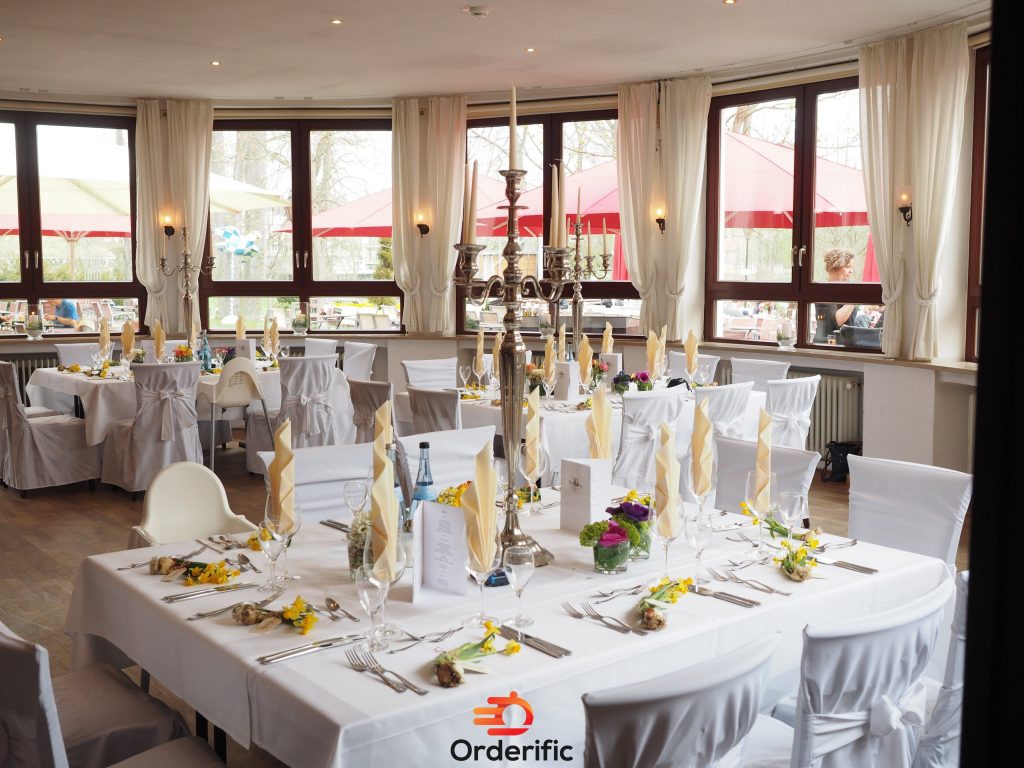Introduction
Sustainability in event management is no longer just a buzzword but a critical aspect of planning and executing successful events. As event organizers, our responsibility extends beyond delivering memorable experiences to ensuring these experiences leave minimal environmental impact. Embracing sustainable event planning helps reduce carbon emissions and waste, including food waste, and sets a precedent for attendees to become more eco-conscious. Hosting green events is an active step towards meeting our sustainability goals, significantly reducing the events industry’s carbon footprint. Join us as we delve into the world of sustainable event management, exploring practical, cutting-edge strategies for waste reduction and adequate energy consumption. Let’s turn every event into a green one: when we prioritize the planet, we create events that truly matter.
Sustainable Event Planning In 2023: 10 Smart Tips
Smart Tip #1 For Sustainable Event Planning Is To Choose A Sustainable Venue
Choosing a sustainable venue is the cornerstone of sustainable event planning. This initial step significantly reduces the environmental impact and carbon footprint associated with the event. As event organizers, we must prioritize venues that adhere to sustainable practices, from energy-efficient lighting to waste management systems.
A sustainable venue can drastically reduce energy consumption and food waste, integral to sustainable event management. Such platforms often have waste reduction, recycling, and composting policies aligning with our sustainability goals.
Event planners should also consider the venue’s proximity to public transport, reducing attendees’ carbon emissions from traveling. The availability of digital conferencing facilities can further decrease carbon emissions by offering an alternative to long-distance travel.
Event planners demonstrate a commitment to sustainability by choosing such a venue, reinforcing the message to attendees that their actions matter. This can have a ripple effect, encouraging attendees to adopt sustainable practices.
In conclusion, selecting a sustainable venue is an effective strategy for sustainable event planning, transforming an ordinary event into a green event. It sets the stage for a series of sustainability-focused decisions that collectively reduce the events industry’s carbon footprint. This way, every event serves a dual purpose: providing an engaging experience for attendees and contributing to the health of our planet.
Remember, the journey toward event sustainability begins with a single step. Let that step be the choice of a sustainable venue, turning the tide in favor of green events and making sustainability the new norm in event management.
Smart Tip #2 Is To Reduce Plastic Waste
Reducing plastic waste is a crucial step towards sustainable event management. Plastic is a significant contributor to environmental pollution, and events can produce a large amount of plastic waste, from food packaging to promotional materials. As event planners, we need to implement strategies to drastically limit or even eliminate plastic waste. First, consider substituting single-use plastic items with reusable or compostable alternatives. For instance, replace plastic cutlery and plates with bamboo or other biodegradable options. Encourage attendees to bring their own reusable water bottles and coffee cups, and provide water refilling stations instead of bottled water. As for promotional materials, opt for digital alternatives or use materials that are recyclable and eco-friendly. Show your commitment to the environment by communicating these practices to attendees, instilling a sense of shared responsibility for our planet’s well-being.
Smart Tip #3 Is To Use Sustainable Event Marketing Products
Using sustainable event marketing products plays a crucial role in advancing your sustainability agenda. Conventional marketing materials often contribute to environmental degradation, largely due to the use of non-reusable or non-recyclable materials. Hence, replacing these with sustainable alternatives minimizes the carbon footprint and aligns with the objectives of sustainable event management. Opt for digital marketing strategies, like emails and social media campaigns, as they are free of physical materials and waste. If you must use physical promotional items, consider eco-friendly options such as recycled paper for flyers or biodegradable lanyards for event passes. You can also choose promotional gifts that encourage sustainable behaviors, like branded reusable shopping bags or water bottles. Incorporate QR codes into your event signage to reduce paper usage while providing access to digital event programs or information. Remember to communicate the sustainability initiatives you’ve taken in your marketing materials to inspire attendees to join in your efforts to protect our planet.
Smart Tip #4 Is To Choose Eco-Friendly Transportation
Choosing eco-friendly transportation options is an essential component of sustainable event management. The carbon emissions resulting from attendee travel can significantly contribute to an event’s overall environmental impact. As event organizers, we can promote greener alternatives and reduce this carbon footprint. Encourage attendees to utilize public transportation, carpooling, or cycling to the venue, which will not only decrease carbon emissions but also ease traffic congestion. If the event attracts attendees from different cities or countries, consider providing live streaming or virtual participation options to reduce long-distance travel. If travel is necessary, suggest airlines that offer carbon offset programs. Additionally, consider arranging shuttles from major hubs like hotels, airports, or train stations to the event venue. This will not only minimize individual car usage but also enhance the attendee experience. Remember, every decision we make towards eco-friendly transportation is a step forward in our sustainable event management journey.
Smart Tip #5 Is To Use Recyclable & Eco-Friendly Swag
As part of the commitment towards sustainable event management, it’s fundamental to consider the use of recyclable and eco-friendly swag. Event swag, if not thought through, can contribute significantly to landfill waste and increase the event’s environmental footprint. Instead, choose swag items that are not only appealing to attendees but also environmentally friendly. Opt for products made of recycled, biodegradable, or sustainably sourced materials. Items such as reusable water bottles, tote bags made from organic cotton, and stationery made from recycled paper can be great alternatives to conventional swag. Alongside being environmentally conscious, these items also serve a practical purpose, increasing the likelihood of them being used post-event rather than ending up in the bin. Furthermore, consider digital swag options, like e-books, online courses or discount codes, that leave no physical footprint. In incorporating such practices, we not only reduce waste but also use the opportunity to enlighten attendees about sustainable choices, reinforcing the event’s commitment to sustainability.
Smart Tip #6 Is To Educate Attendees
Educating attendees is a powerful strategy in sustainable event management. It is not enough to merely implement sustainable practices; these efforts must be communicated effectively to the attendees, encouraging them to appreciate and participate in them. Providing clear and concise information about the event’s sustainability initiatives can foster a sense of shared responsibility among attendees. This could be done through various channels such as emails, social media, or dedicated sections on the event website. During the event, consider setting up information booths or digital screens that showcase your sustainability efforts and provide tips on how attendees can contribute. In this way, events become a platform for raising awareness about sustainability and influencing positive change. Remember, the key to making a significant environmental impact goes beyond implementing sustainable practices to educating and inspiring attendees to carry these practices into their own lives.
Smart Tip #7 Is Adopt Green Catering Practices

Adopting green catering practices is vital to sustainable event management. The food and beverage industry contributes significantly to carbon emissions and waste; therefore, our choices in this area can dramatically affect an event’s environmental impact. Opt for caterers who source local, organic, and seasonal ingredients, which not only reduce the carbon footprint associated with food transportation but also support local economies. Ensure vegetarian or vegan options are available, as plant-based meals typically require less energy to produce. Importantly, develop a plan to minimize food waste, perhaps by using a ‘cook-to-order’ strategy or donating excess food to local food banks. For beverages, offer tap water instead of bottled water and serve drinks in glassware instead of single-use plastic cups. Remember, each eco-friendly decision in catering contributes to our broader sustainability goals in event management.
Smart Tip #8 For Sustainable Event Planning Is Donating Leftover Food
Donating leftover food from your event is a cornerstone of sustainable event management, reducing waste and supporting local communities. Conferences, parties, and other events often generate a surplus of food that ends up in landfills, contributing to methane emissions. Instead, partnering with local food banks or shelters can ensure that this food is put to good use, providing meals for those in need. Before the event, contact local organizations to understand their donation guidelines and organize efficient pick-up or delivery of the food. Also, consider working with a caterer who understands and supports your commitment to donating leftovers. By doing this, not only are you minimizing food waste, but you are also making a significant social contribution, turning your event into an opportunity to give back to the community. Remember, sustainable event management is not just about reducing our environmental impact, but also about creating beneficial social impacts.
Smart Tip #9 Is Virtual Attendance
Facilitating virtual attendance is a significant step in sustainable event management, reducing the carbon footprint associated with travel. It allows attendees from globally diverse locations to participate, eliminating their need for long-distance travel. Offering a virtual attendance option not only makes your event more accessible but also significantly lessens its environmental impact. Remember, the more we embrace digital solutions, the more sustainable our events become.
Smart Tip #10 Is Go Digital
Embracing digital solutions is the final smart tip for sustainable event management. By leveraging digital technology, such as digital tickets, online marketing materials, and virtual attendance platforms, we can drastically reduce the environmental impact of our events. These practices not only enhance attendee experience but also preserve our planet’s resources, making every event a step towards a more sustainable future.
Conclusion
In the current era, sustainable event management isn’t just a trend — it’s a necessity. The strategies outlined above ensure that event planning practices reduce environmental impact and promote social responsibility. From choosing sustainable venues and marketing products, reducing plastic waste, and opting for eco-friendly transportation, to offering recyclable and eco-friendly swag, educating attendees, adopting green catering practices, facilitating virtual attendance, and embracing digital solutions, each decision you make carries weight and contributes to the bigger picture of sustainability. It’s about making a stand, inspiring change, and driving our events towards a greener future, one event at a time. Sustainable event management is more than just an industry buzzword; it’s a commitment to the health of our planet and future generations.
Ready to take the next step towards sustainable event management? Book a demo with Orderific today and let us guide you in making your next event a sustainable success. Let’s work together to make a difference.
FAQs
What defines a “green event,” and how does it differ from traditional events?
A “green event” is characterized by sustainable practices aimed at reducing its environmental impact, differing from traditional events that may not prioritize such measures.
Why is there a growing emphasis on hosting environmentally friendly events?
The increasing emphasis on hosting environmentally friendly events is due to rising awareness about climate change and the significant environmental impact of large gatherings.
What sustainable practices can event organizers implement to make their events “green”?
Event organizers can implement practices such as reducing waste, encouraging public transportation, opting for digital marketing, and choosing eco-friendly catering.
Are there certifications or standards for verifying the eco-friendliness of a green event?
Yes, there are several certifications such as ISO 20121 and Green Seal Event Certification for verifying the eco-friendliness of a green event.
How can attendees contribute to the success and sustainability of green events?
Attendees can contribute by following the event’s green policies, using eco-friendly transportation, minimizing waste, and engaging with digital assets.













